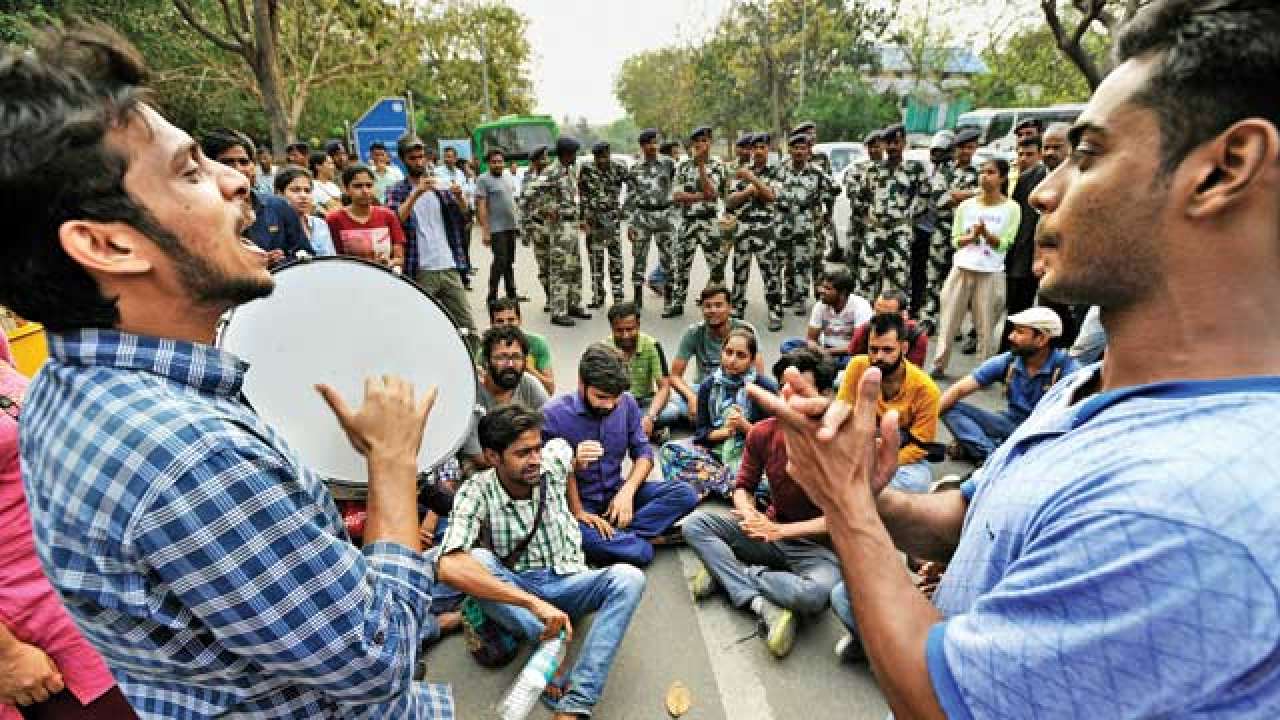
I have been loath to jump into JNU’s latest fracas, the attendance imbroglio. The reasons for my reluctance are both personal and pedagogic. The personal first. Taking contrarian positions in the very place where one lives and works makes one unnecessarily disliked. Just as cheap popularity is undesirable so is gratuitous disapproval. It interferes with my primary job, which is to learn and to teach.
Students are young, impressionable, passionate, and often unreasonable. They can form extremely strong, even uninformed views, about their teachers. Constantly going against the tide in JNU only gives a handle and fillip to those who wish to misunderstand and misrepresent what I stand for or believe. The fallout is an attenuation of my own ability to contribute to my vocation, if not a shrinking of my sphere of positive influence.
The fact is that I too love the many freedoms of JNU. These freedoms, if used responsibly, add greatly not only to formal learning outcomes but the development of personality. One of the most important functions of a truly nurturing academic environment is to facilitate independent-minded, unafraid, self-regulating, highly responsible, fair, and deeply compassionate human beings. For this, liberty is absolutely vital.
Now to the pedagogic reasons. There are essentially two views on how students learn best. The first is epitomised by the age-old and well-known maxim: spare the rod and spoil the child. As opposed to this, consider, “The mind has to be consulted in its own growth.” This injunction of Sri Aurobindo I have found not just useful, but accurate, especially as we get into the subtler dimensions of transformative learning.
Does this mean that the first principle, that discipline is necessary to acquiring knowledge, is untrue? No. For much of what is basic, from mastering the alphabet, cramming tables or grasping the “fundas” of any subject, repetition, regulation, and revision are indispensable. What this means is that the best pedagogical scheme requires a combination of the two, discipline and liberty, instruction and freedom, structure and autonomy.
But here comes the moot question: Is JNU such an ideal environment in the first place where new, some would say coercive, rules are unnecessary? No. Instead, it would perhaps be more accurate to call JNU a place where academic and institutional laxity, bordering on indiscipline and irresponsibility, prevails. But does this mean that a university where both teachers and students enjoy a huge degree of autonomy and emancipation should be turned into a boot-camp, with army-style discipline, or a super-efficient corporate organisation, with soul-crushing deliverables? Again, the answer is no. Neither zero answerability nor rigid control would be conducive to the ends of higher education. What needs to be done? Again, the answer is a balance, respecting freedom and autonomy, but also ensuring academic excellence and accountability.
Unfortunately, in JNU like many of our other universities, liberty has often turned into license. In this very latest agitation, students have blocked roads and buildings, demanding the “right” not to attend classes. How no-attendance can be a “right” or a “demand” is difficult to understand. How can the main purpose of securing the extremely difficult admission into JNU be reduced to the right not to attend classes? Isn’t blocking buildings and disrupting the academic calendar unfair to the majority of students who wish to attend classes?
The fact is that having no-attendance requirements at all in JNU has led to many distortions of our cherished academic freedoms and principals. In a worst-case scenario, a student can get a degree without attending a single class or draw scholarships worth tens of thousands of rupees a month without doing any work or even coming to the university, except occasionally, to have some papers signed by the supervisor. Imposing minimum attendance would certainly plug some of these loopholes in the system.
Once again, when it comes to JNU, the core issue is not attendance, but what the very purpose of the university is. Is its primary purpose to bankroll agitational politics, with near-zero tuition and hostel fees, and subsidised food? Or is it to offer high-quality higher education aiming for greater and greater excellence? Who runs the university, who controls its functioning? Protestors and activists or administrators and academics?
Given how the latter have had a free run of the place for decades, isn’t an over-correction unavoidable? Can deeply entrenched vested interests be dislodged so easily, without bitter resistance on their part? Will they give up their unearned privileges and advantages so easily? Cleaning up JNU’s Augean Stables is therefore long overdue. That is what Vice-Chancellor Jagadesh Kumar is trying to do. It is a difficult, disliked, even detested job, but necessary. The need of the hour is to support him.
The author is a poet and professor at JNU. Views expressed are personal.